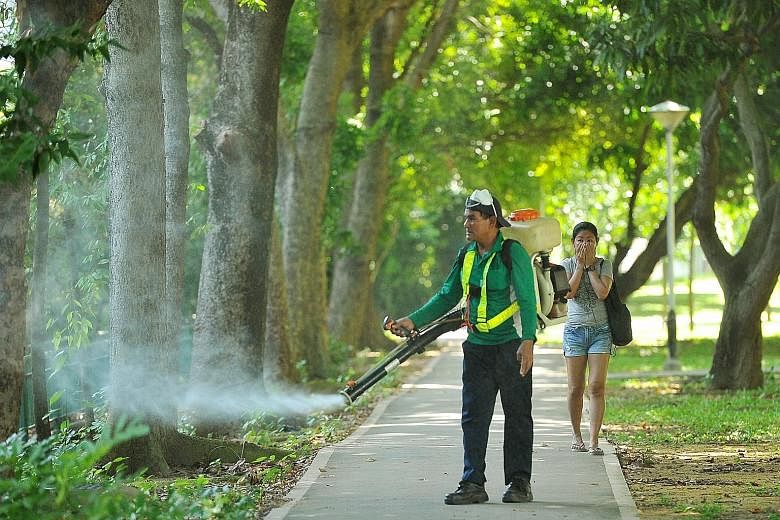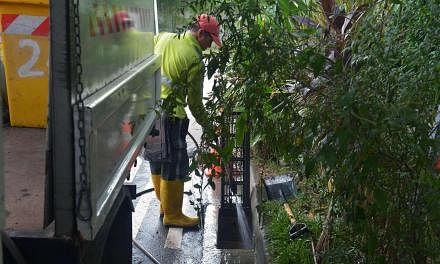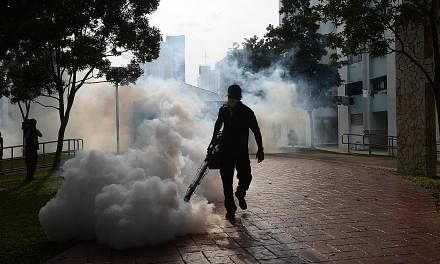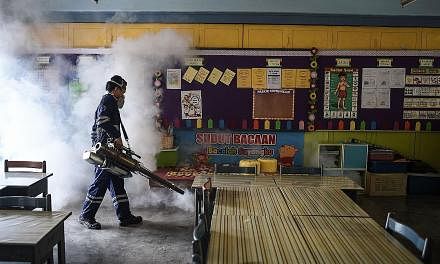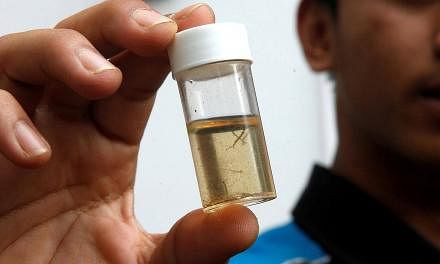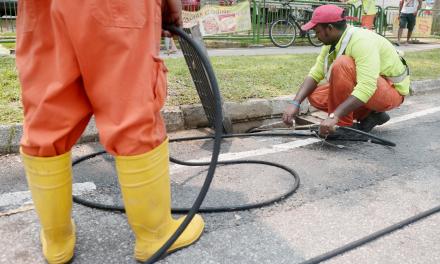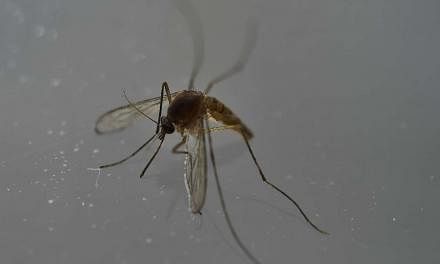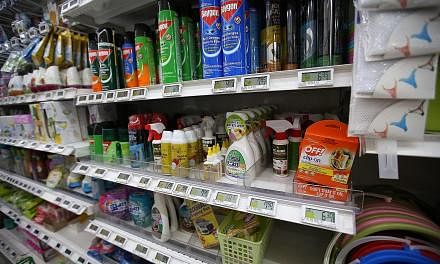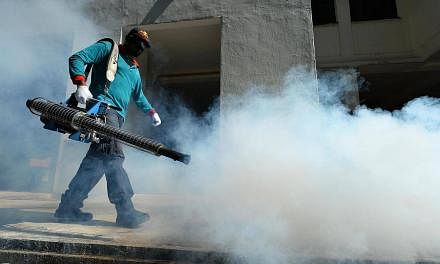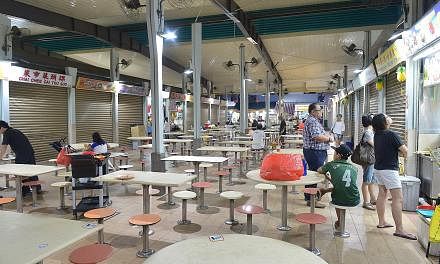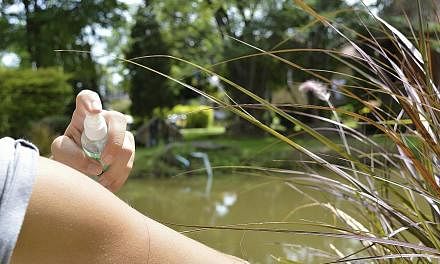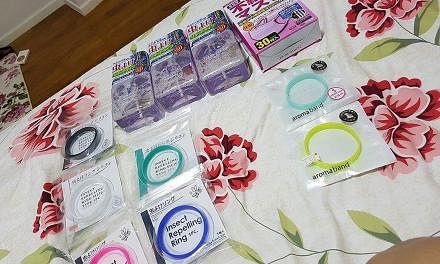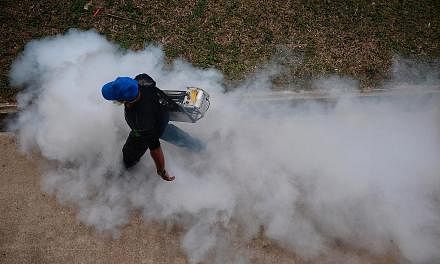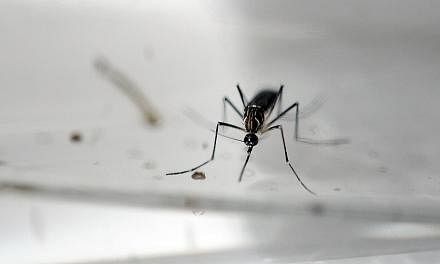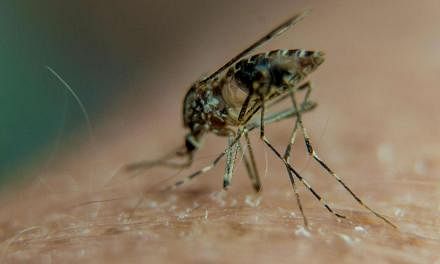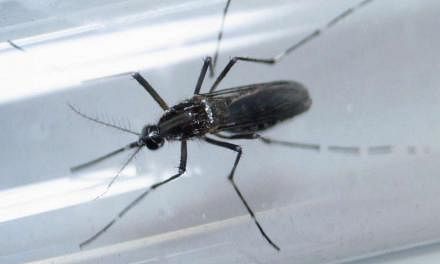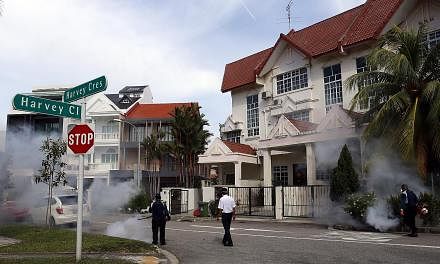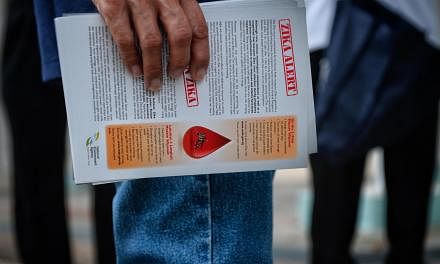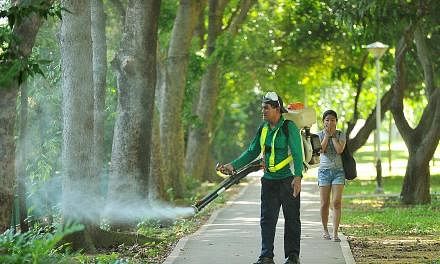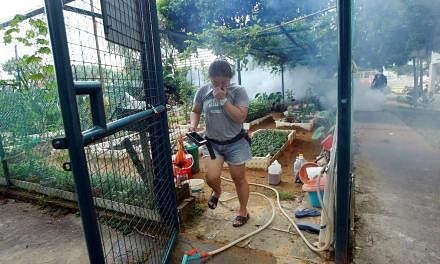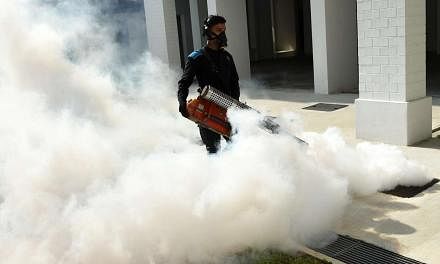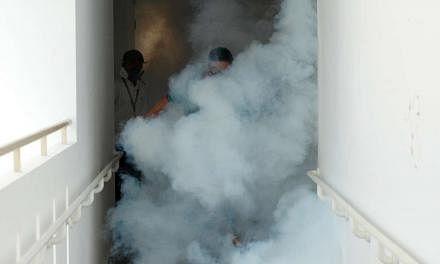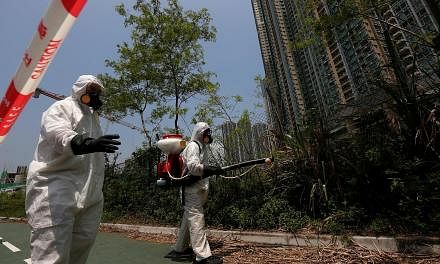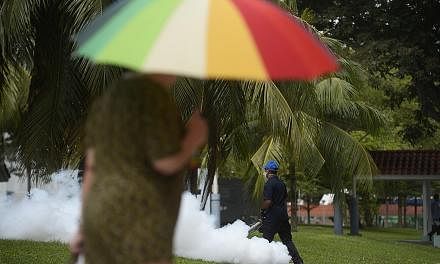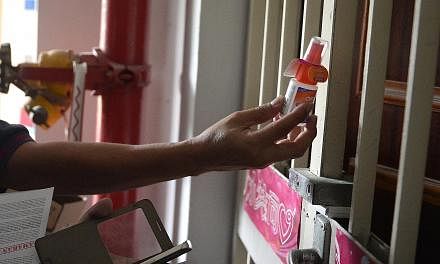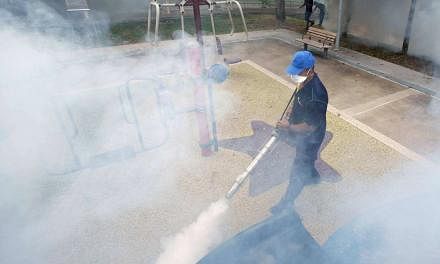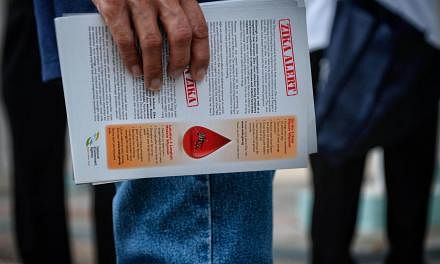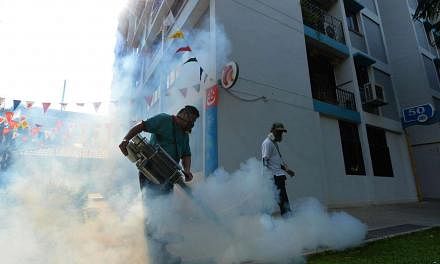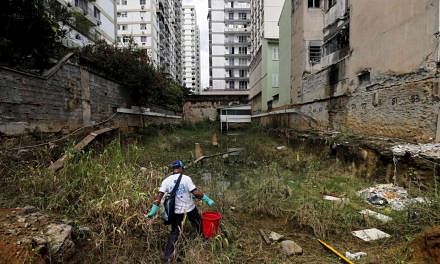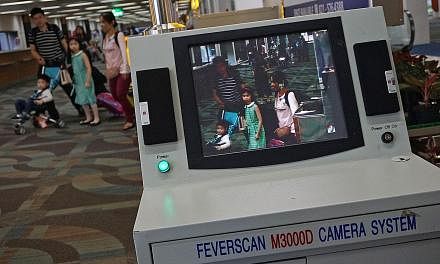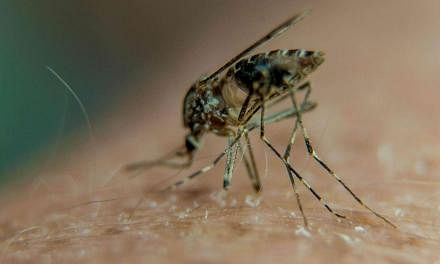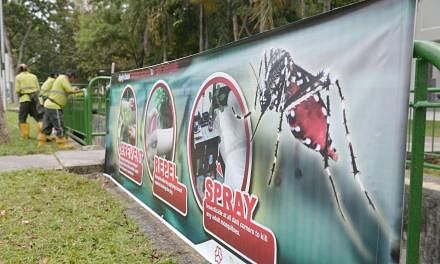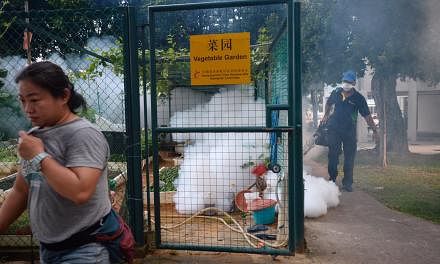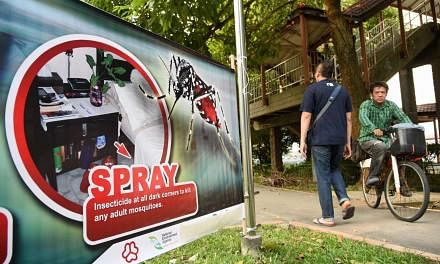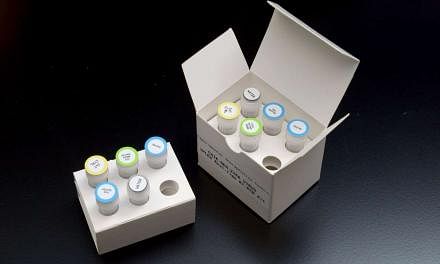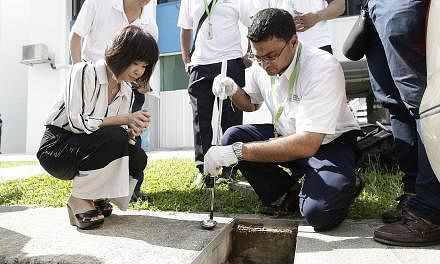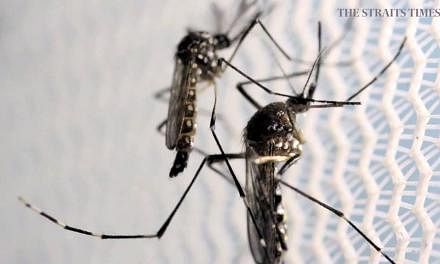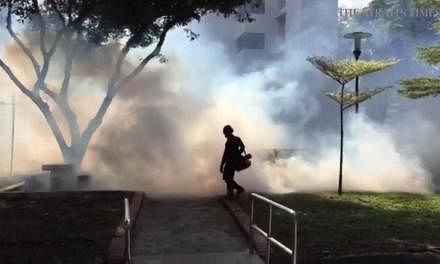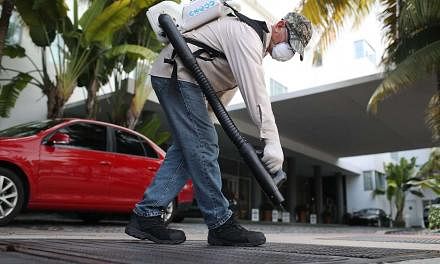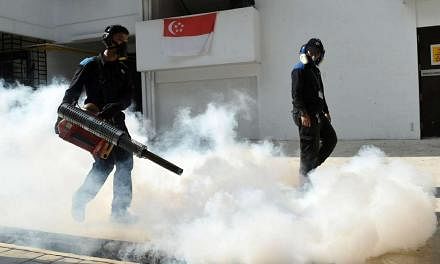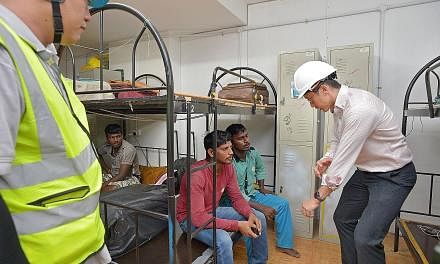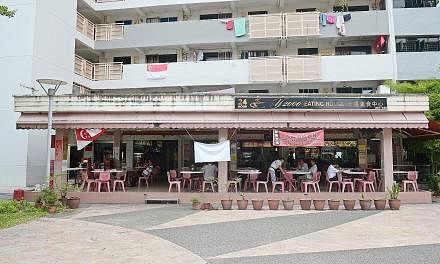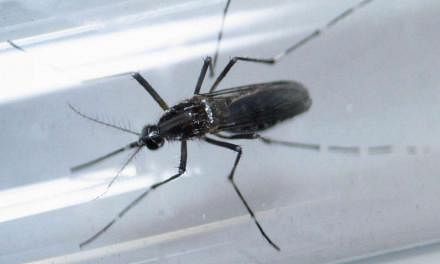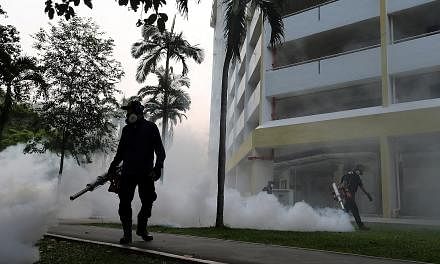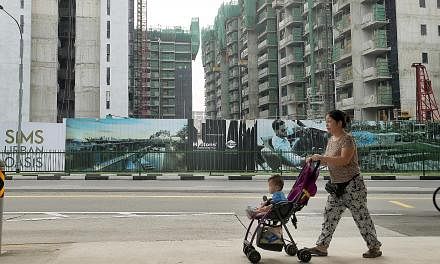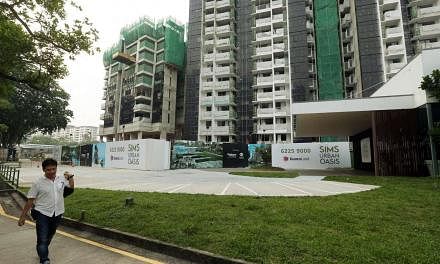Every morning, an elderly man in Telok Kurau cycles around his neighbourhood, picking up containers of water left behind for too long by cat feeders.
Nearby, 16-year-old Koh Liang Jun ensures that all containers used for gardening in his home are overturned and cleared of water every night - and even drinking water is not kept out for long.
Across the island, many are taking extra steps, and even choosing to err on the side of caution, to guard against mosquitoes after an outbreak of the mosquito-borne Zika virus here.
Last Saturday, a 47-year-old woman tested positive for Zika in the first locally transmitted case here. As of yesterday, there were a total of 189 cases.
Liang Jun said his family is more careful now, given that Telok Kurau is near the main Zika cluster in Aljunied Crescent/Sims Drive.
-
Penalties for breeding mozzies
-
• Mosquitoes found breeding in homes, whether in a dengue cluster or not: $200 fine
• Obstructing or hindering the authorities from entering and inspecting premises for conditions favourable to propagating or harbouring organisms that transmit diseases, such as mosquitoes, after being given a 12-hour notice: a fine of up to $5,000, up to three months' jail, or both.
• Construction sites which have mosquito-breeding issues: The National Environment Agency can issue a Stop Work Order and fines, or prosecute errant contractors.
"Especially now that there are many cases of Zika, and they are moving closer to us, we practise many measures, including keeping water in our pots at a certain level," he said.
His neighbour in Telok Kurau, who did not want to be named, said he picks up plastic bags and milk cartons that may collect water when he goes cycling every morning.
Meanwhile, residents in the Aljunied Crescent/Sims Drive cluster said they are not overly worried and take the necessary precautions. This includes regularly rinsing the drains along common corridors in Housing Board blocks where plants are grown.
"We ensure there is no stagnant water in our home and do not keep trays under our potted plants," said Ms Kok Nguet Sing, a 73-year-old retiree, who also gets rid of the water that drips from her pots.
Pregnant residents such as Ms Guo Xiu Xiang, a 35-year-old cashier, thought about moving away from the area but decided that an infection could happen anywhere.
"There are more than 100 cases in different areas. We have to be careful, no matter where we live," said the mother of a six-year-old boy. "Before we go out, we spray insect repellent in the house and also on ourselves."
Madam Wong Shu Qing, who also has a young child and lives on the second floor of an HDB block in Aljunied, said she is worried about the potential health effects of fogging in her neighbourhood.
But the sales administrator in her 30s said life goes on. She said she tries to ensure that her family members use insect repellent when they go out.
Elsewhere, people living in areas which the authorities are monitoring based on where those infected with Zika live or work - such as Sembawang Drive - are also taking precautions even though no Zika case has surfaced there yet.
"I keep myself aware of the hot spots. If I need to go somewhere in a cluster, I'll prepare myself by applying mosquito repellent," said Ms Jenny Lee, 38, an engineer.
"If I see many mosquitoes flying around or any stagnant water in drains, I will inform the National Environment Agency, and I've done it before. It's not just about protecting myself, but also doing my part to protect my neighbours as well," she said.
Mr Lim Tian Yin, 38, an IT engineer who lives in Sembawang, said he finds himself looking into flower pots and drains to check for stagnant water. "I thought it would be just a few cases and Zika would eventually go away. But it doesn't seem like that any more," he said, adding that "what we can do is to protect ourselves from it".
